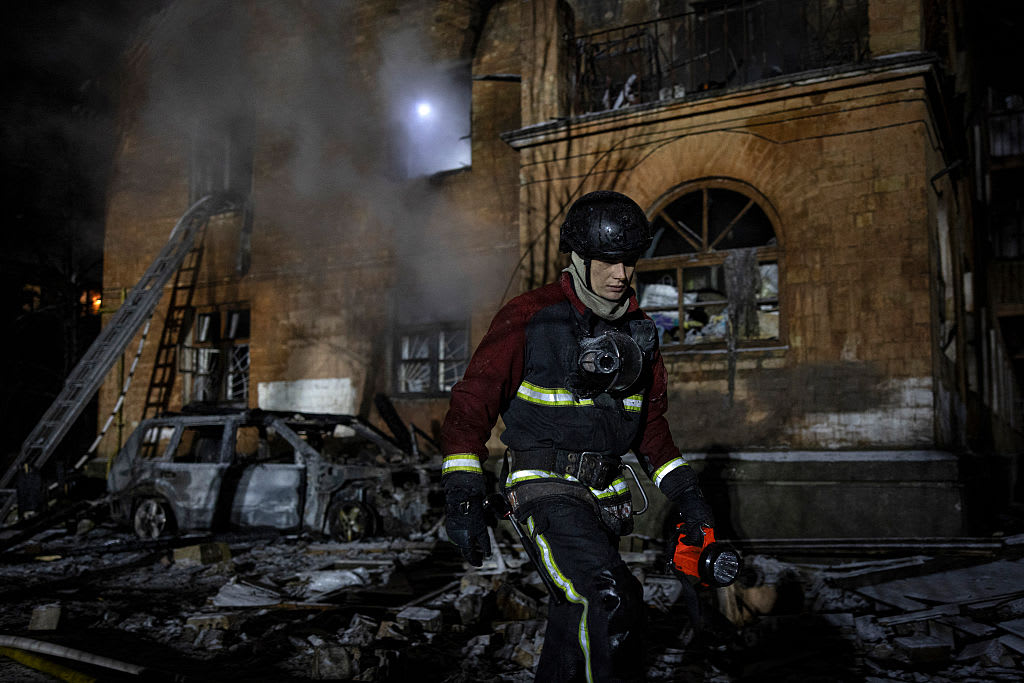Extreme heat costs the U.S. $100 billion a year, researchers say
The kind of extreme heat scorching the U.S. this summer isn't just uncomfortable — it also makes workers less productive and costs the U.S. billions of dollars in lost economic activity.
Labor-intensive outdoor professions are most exposed to the debilitating effects of soaring temperatures, while excessive heat can also impair workers' cognitive abilities, research shows. Such weather can increase absenteeism and lead workers to quit early, reducing the number of hours spent on the job, according to the 2023 study by Chinese researchers.
Exposure to temperatures greater than 85° Fahrenheit leads workers to reduce their workdays by an average of one hour, compared to when air temperatures are 76–80°F, a separate study shows. And as climate change drives more extreme weather, productivity losses are expected to intensify over time, experts warns.
Heat can affect a wide range of jobs, from agricultural workers to those who work in factories, warehouses and restaurants as well as airline, telecom, delivery and home health workers New York Times reporter Coral Davenport told CBS News. When workers are fatigued and their output drops, their employers take a hit, while there can be other risks.
"Medical researchers have known for decades that when workers are exposed to high heat — over 85 degrees, over 95 degrees — that they are more likely to make mistakes, have injuries, work more slowly," Davenport said. "But something that economic researchers have only just started to put together is that this really has a major impact broadly across the economy for those reasons."
Even if a workplace like a restaurant is air conditioned, heat coming from the kitchen can make chefs more injury prone, according to R. Jisung Park, a labor economist and assistant professor at the University of Pennsylvania.
"We have a 'just right' zone where we perform optimally. When you push us beyond that zone, the body tries to maintain stability, but it's more taxing and we make more mistakes," Park told CBS MoneyWatch.
Other workplaces are simply much harder to cool. That said, mitigating the heat's impact on labor productivity is challenging.
"Air conditioning isn't the obvious answer because there are some workplaces where it's very expensive or impossible, so we need to get creative," Park said. "Even some warehouses are really big — they're indoors, but there are so many openings for trucks to load and unload."
A recent study by researchers with the Adrienne Arsht-Rockefeller Foundation Resilience Center estimated that high heat costs the U.S. $100 billion annually in reduced productivity, a figure expected to double by 2030. Such daunting figures exclude related hits from factors including a decrease in tourism and rising health and energy costs.
Employers must also make costly investments to adjust their business to account for the rising mercury, including in air conditioning. That can take a particular toll on small and midsize businesses.
"It's easily a couple millions dollars investment, and that is not an investment a lot of employers feel like they're able to make," Davenport said.
The federal Occupational Safety and Health Administration is working on developing a set of national standards that would institute protections for workers exposed to heat. Some business groups have opposed the effort, citing the costs of such remedial measures.
"It would probably include things like mandatory rest, mandatory water, potentially requiring some employers to install air conditioning," Davenport said. "And already a lot of business groups have come out against it and said, 'This is going to be too much, this could impose big costs on businesses.' So that debate is happening."



